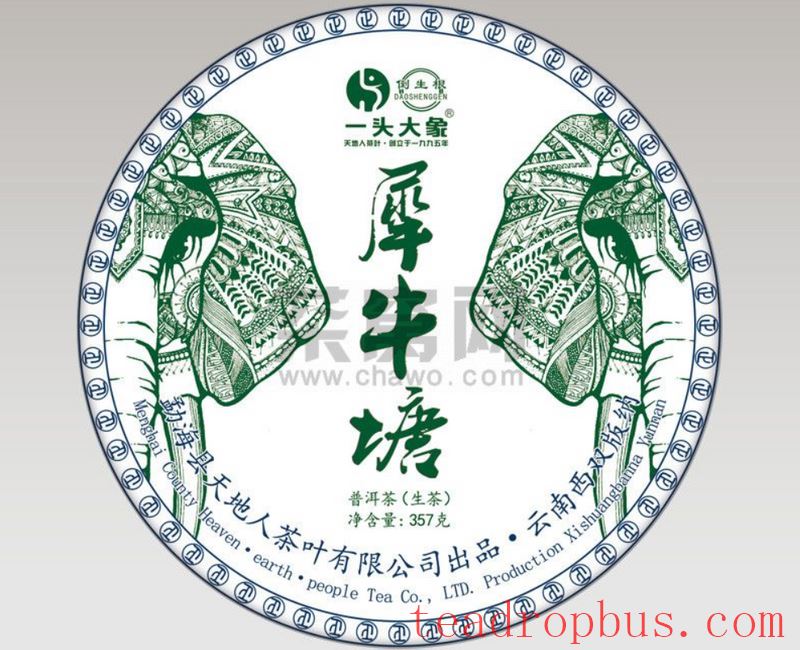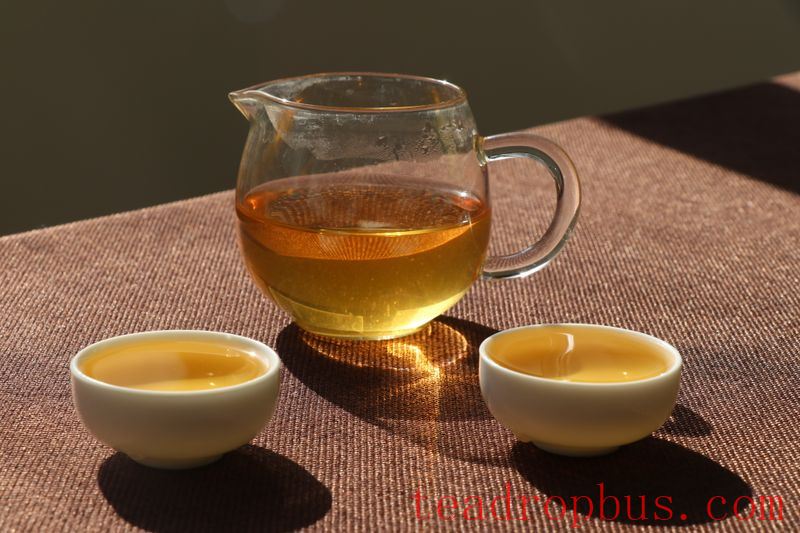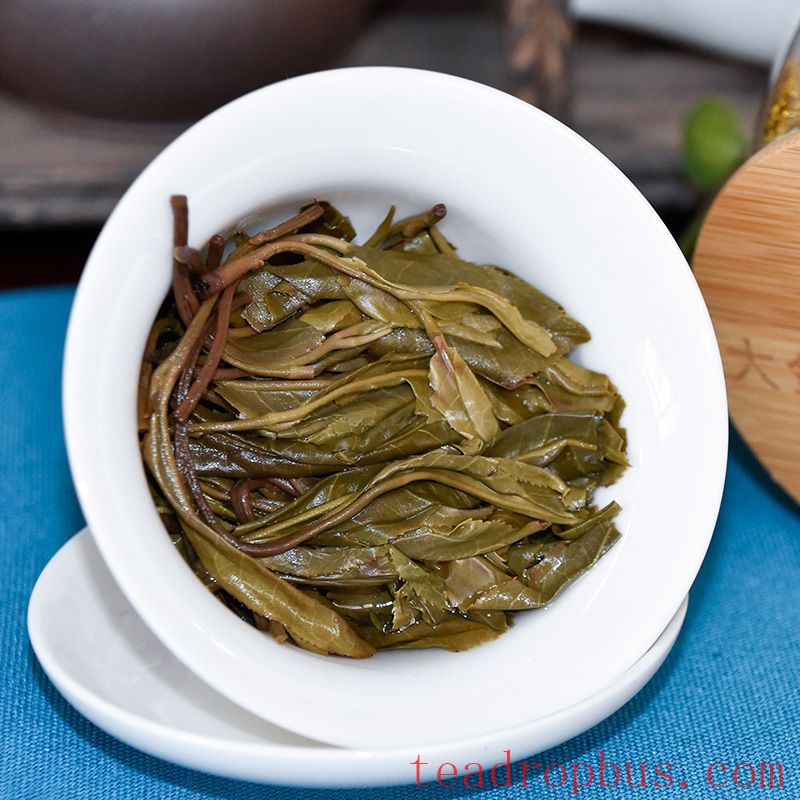Qiniutang is located in Pasha, between Nannuoshan and Bulang Mountain, with an average altitude of about 1,800 meters. The area boasts excellent forest vegetation and tall Tea trees, making it one of the regions in Menghai with the best forest vegetation and the tallest, largest tea trees.

The existing ancient tea trees in Pasha have a long history, dating back to the Tang Dynasty. The entire Village has over 3,000 mu (about 200 hectares) of ancient tea gardens. Qiniutang is far from the village, with minimal human intervention, and the ancient tea gardens are lush with thick layers of humus in the understory, fertile soil, and teas rich in internal substances.
The dry leaves of Qiniutang Pu'er tea are tightly twisted and robust, with full buds and leaves, visible downy hair, and a brownish-green color. Its liquor is bright yellow and transparent, fresh and clear. The aroma is like honey-sweet flowers, delicate and long-lasting. The taste is potent, fragrant, rich, and smooth, with ample flavor, thick quality, and a refined water path. It also features core characteristics such as “aroma, sweetness, refinement, and smoothness,” earning it the name “Menghai's First Fragrant Beauty.”

Qiniutang's ancient tea garden can be considered the king of the mountains in Pasha's ancient tea region, attracting many tea enthusiasts. Here, one can experience the serene beauty of the deep forest. The conditions for tea tree growth and the environment are very similar to those in Lao Banzhang. Walking along the forest trail to Qiniutang, you can smell the fresh fragrance of plants mixed with the scent of earth, while the ancient tea gardens are distributed on both sides of the road.

The carefully selected first spring ancient tree tea from Qiniutang uses the middle village of Pasha as its source material, produced using traditional techniques. It is characterized by a rich taste with a slightly noticeable bitterness, a high and fresh aroma, a refined water path, a full-bodied and smooth liquor, a strong aftertaste and salivation, and a lingering fragrance in the mouth. It is said to possess “seven parts of Banzhang tea qi (energy) and three parts of Bingdao character,” earning it the title “Menghai's First Fragrant Beauty.” Overall, it combines strength and softness, with good potential for later transformation. The tea soup is abundantly thick and incredibly smooth, leaving a refreshing sensation in the throat after drinking. Its tasting experience can be summarized with “aroma,” “sweetness,” “refinement,” and “smoothness,” offering endless surprises and immersing the drinker in its charm.